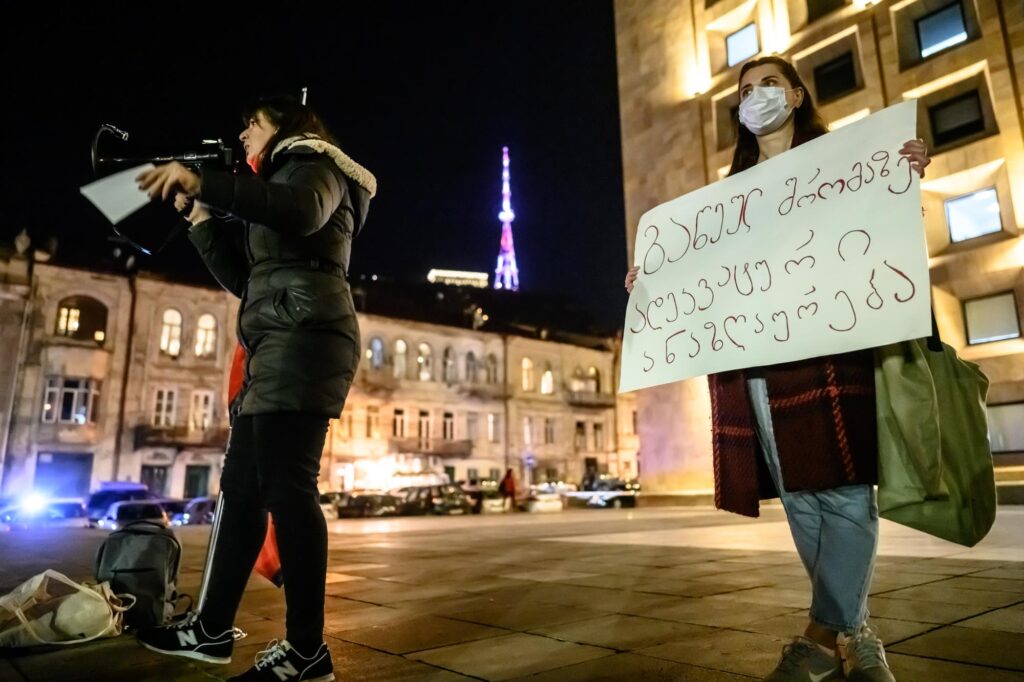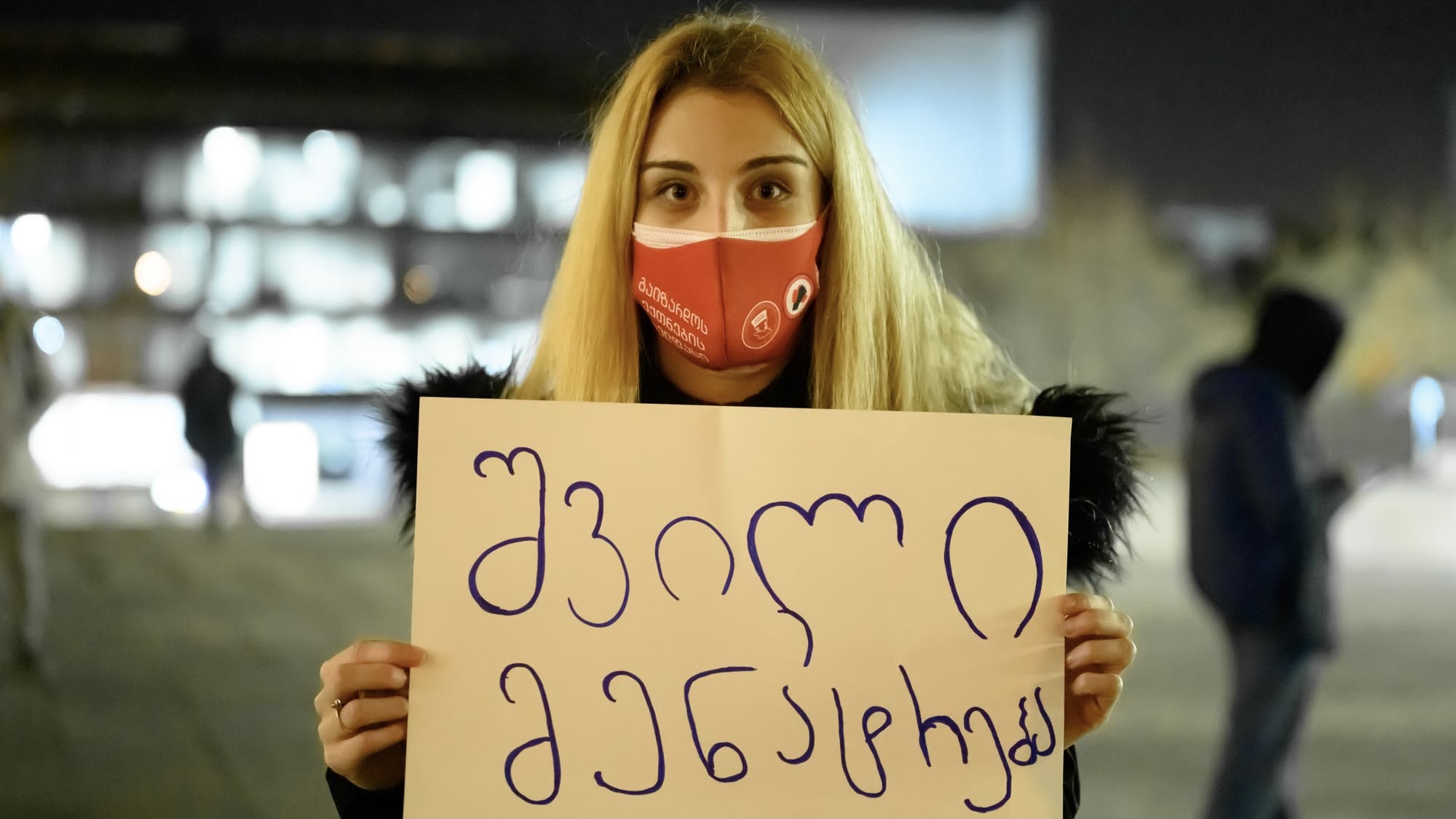A group of nurses and trade union organizers staged a protest in front of Georgia’s government headquarters in Tbilisi on December 10, calling for fairer pay and measures to ease the extreme workload they have faced for years.
“Nurses in Georgia are very low in the health system hierarchy, maybe just a bit ahead of orderlies,” says Sopo Japaridze from Tbilisi-based trade union Solidarity Network. “Because of this, they don’t really have a voice at work, few people consider them to be professionals like doctors are perceived to be professionals,” she adds.
Although they do not enjoy the same position in the hierarchy as physicians, nurses in Georgia are responsible for most of the care burden. According to research conducted by Solidarity Network, nurses’ workload was worrisome before the pandemic, and it became even worse after the onset of COVID-19. “With COVID-19, the patient to nurse ratios increased tremendously, and the already long hours increased as well,” says Japardize.
As the health system in Georgia has been shifting towards a profit-driven logic for years, and public investment in the health workforce was overlooked, hospitals and other health facilities were not ready for the pandemic stress. COVID-19 infection and mortality rates remain high, and health workers leave in great numbers. “It’s impossible to live with such a workload and such low salaries. Most people have already moved abroad, and people continue to leave,” said Nona Zandarashvili, a nurse and activist for a local news report.
In a release published on the day of the protest, Solidarity Network stressed that nurses were the ones who continued to care for people during the pandemic, regardless of their working conditions, but the situation could not go on like this. Nurses have tried to raise awareness about their working conditions in the past but this didn’t lead to significant improvements. The trade union is now supporting them by raising awareness about the deficit of staff in hospitals, but this has still not translated to a much needed increase in rights.

Not enough for physical survival
Instead of receiving more support in everyday tasks and adequate pay, all the nurses got during the pandemic was a round of applause, much like their colleagues in other countries. Meanwhile, many nurses in Georgia continue to do more than one job, says Japaridze, as their hospital salaries are not enough to cover even the most basic necessities. “A nurses’ salary today is not even enough for a month-to-month physical survival,” stated Solidarity Network during the protest.
Their situation is similar to many other workers in Georgia who, the trade union research shows, live below the poverty line. The nurses, however, continue to engage in all kinds of mobilizations very sparingly. Even the Tbilisi protest, where more than 1000 nurses had been invited to join, saw a small number of participants. “We were not surprised to see this: the nurses who support our living wage initiative are all exhausted; they cannot get shift changes because there are not enough nurses in the system; or they are on a shift change because of the same reason,” says Japaridze.
But there is a flip side to the current state of affairs too. Japaridze explains that because of the organizing efforts in the protest, nurses in other regions of Georgia heard of the initiative and expressed their intention to protest outside of the capital. This is unlikely to result in the complete overhaul of the health system that the country needs, she says, but it is a step in that direction. By helping the nurses to find their voice in the workplace, the trade union is mounting pressure on the government to take on the social responsibility it has to all workers.
Read more articles from the latest edition of the People’s Health Dispatch and subscribe to the newsletter here.





